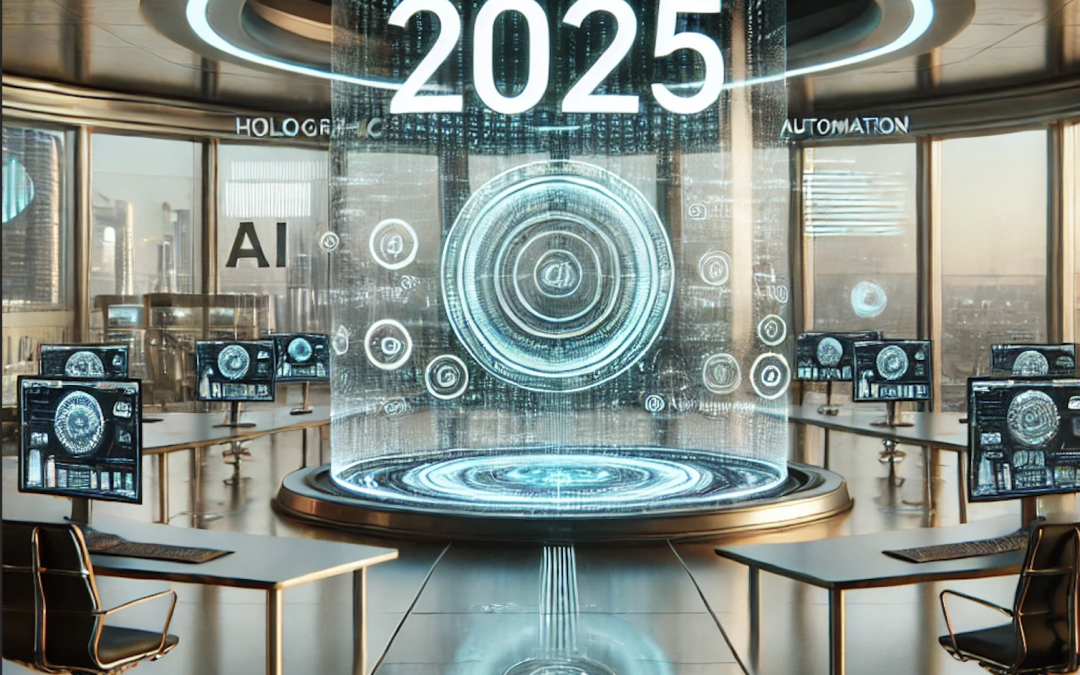The landscape of human resources is undergoing a seismic shift, driven by artificial intelligence that’s no longer just promising — it’s delivering. For small and mid-sized businesses, 2025 marks a pivotal moment where AI transforms from a luxury into a necessity, offering enterprise-grade capabilities at scale. This evolution isn’t just about automation; it’s about empowering SMBs to compete more effectively in an increasingly complex talent marketplace.
1. Smart Recruitment: Beyond Basic Automation
The days of manually sifting through resumes are numbered. AI-driven recruitment in 2025 isn’t just about matching keywords — it’s about understanding potential. Advanced systems now analyze candidate profiles holistically, considering not just experience and qualifications, but also predictive success markers and cultural fit indicators.
What makes this transformation particularly powerful for SMBs is its accessibility. Rather than requiring extensive HR departments, AI platforms democratize sophisticated recruitment capabilities. A manufacturing company with 50 employees can now leverage the same caliber of talent assessment tools as industry giants. These systems don’t just screen candidates; they engage with them, providing personalized interactions that maintain the human touch while dramatically reducing time-to-hire.
2. Personalized Employee Development: The AI Learning Revolution
Employee development in 2025 transcends traditional training programs. AI-powered learning platforms now function as personal career coaches, analyzing individual performance patterns, skill gaps, and career aspirations to create dynamic learning pathways. This shift is particularly crucial for SMBs, where employee versatility and growth directly impact business success.
These systems continuously adapt, identifying emerging skill requirements in your industry and aligning learning recommendations with business objectives. For instance, when an AI system detects that a small marketing agency’s clients are increasingly requesting video content, it automatically suggests relevant video production courses to team members, ensuring the business stays ahead of market demands.
3. Virtual HR Assistant: Your 24/7 Employee Support System
The most transformative aspect of AI in HR isn’t just automation — it’s augmentation. Virtual HR assistants now serve as always-available support systems, handling everything from benefit inquiries to compliance checks. For SMBs, this means providing enterprise-level HR support without the enterprise-level headcount.
These AI assistants excel at managing routine tasks while learning from each interaction. They understand context, recognize patterns, and proactively address potential issues before they escalate. When an employee asks about parental leave policies, the system doesn’t just provide information — it anticipates related questions about benefits, return-to-work protocols, and relevant regulatory requirements.
4. Real-Time Employee Engagement: The Predictive Edge
Employee engagement has evolved from annual surveys to continuous, AI-powered insight generation. Modern platforms analyze communication patterns, work behaviors, and performance metrics to provide real-time insights into team morale and potential retention risks. This predictive capability is particularly valuable for SMBs, where each employee significantly impacts company culture and performance.
The system might notice that a high-performing team member’s communication patterns have changed or that their project completion times are increasing—potential indicators of burnout or disengagement. By flagging these patterns early, HR can intervene proactively, perhaps adjusting workloads or initiating supportive conversations before issues escalate to resignation.
5. Compliance Intelligence: Your Regulatory Guardian
In 2025, AI serves as more than a compliance checker — it’s a proactive regulatory partner. For SMBs, where a single compliance violation can have devastating consequences, this protection is invaluable. AI systems continuously monitor regulatory changes across jurisdictions, automatically updating policies and flagging potential compliance risks.
These platforms don’t just alert you to changes; they provide contextual guidance on implementation. When a new state law affects overtime calculations, the system automatically adjusts payroll parameters, updates relevant policies, and generates communication materials for employees. This proactive approach transforms compliance from a reactive burden into a strategic advantage.
Looking Ahead: Your Competitive Edge
As we move through 2025, the question for SMBs isn’t whether to adopt AI-powered HR solutions — it’s how quickly they can implement them. These technologies level the playing field, allowing smaller businesses to offer sophisticated HR capabilities that were once the domain of large enterprises.
The key to success lies in viewing AI not as a replacement for human HR professionals, but as a powerful tool that enhances their capabilities. By automating routine tasks and providing deeper insights, AI frees HR teams to focus on what matters most: building strong relationships, developing talent, and creating workplace cultures where people thrive.
For SMBs ready to embrace this transformation, the benefits extend far beyond operational efficiency. AI-powered HR becomes a strategic advantage, enabling faster growth, better talent acquisition, and more engaged employees. The future of HR isn’t just automated — it’s intelligent, predictive, and accessible to businesses of all sizes.
Keywords: AI in HR, HR automation, AI recruitment tools, employee engagement AI, SMB HR transformation, AI for small businesses, AI-driven compliance, HR technology trends 2025, AI-powered training, AI HR assistants


Recent Comments